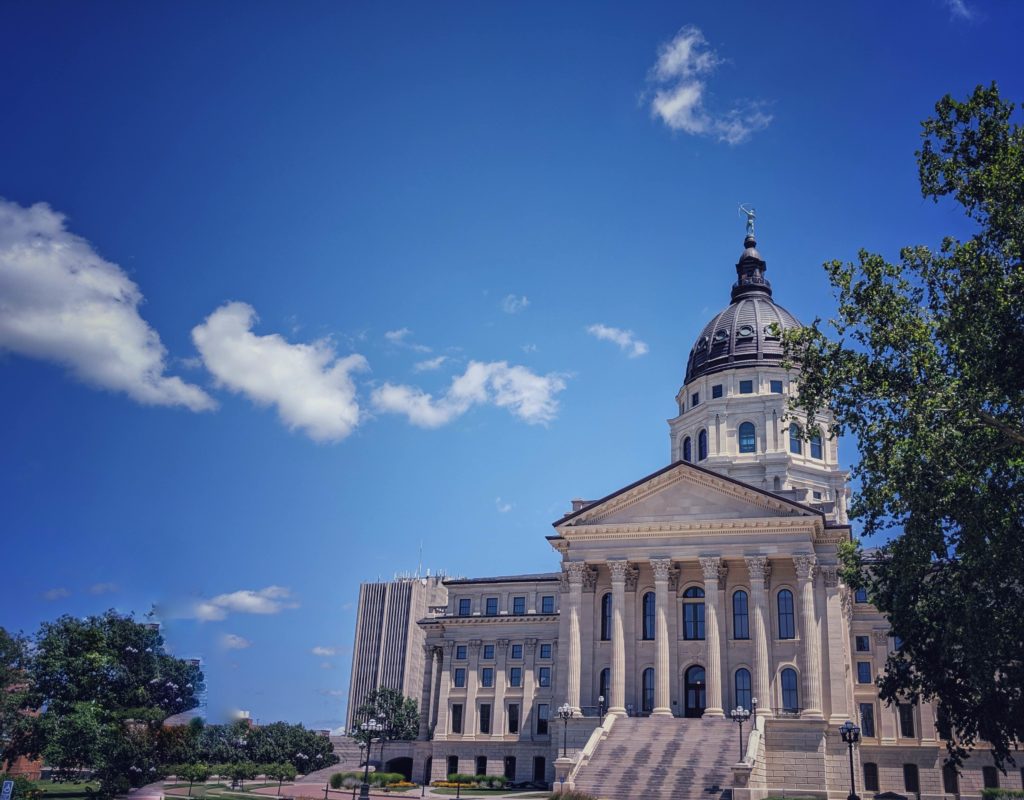House passes HB 2119, loaded up with anti-public schools policies
CLICK HERE to send a thank you message.
We’ve been reporting a lot on Kristey Williams’ anti-public education bill, HB 2119. The bill started out as a massive private school voucher scheme. The intention is to move as many students as possible from public schools into private schools at state expense and to allow private schools to select and recruit high-achieving, low-income students or athletically talented, low-income students.
Later, Williams and the Republicans on her K-12 Education Budget Committee loaded HB 2119 up with lots of other ideas including the contents of HB 2068 (massive expansion of the state’s current tuition tax credit/voucher program), the Governor’s education budget (which fulfills the Gannon promise), other budget items paid for by shifting federal COVID funds around, and large funding cuts to school districts that have students on remote learning programs. They then tossed in a few sweeteners: A one-year extension on high-density at-risk weighting, the extension of the 20-mill property tax levy for schools, and permission for schools to give classroom teachers a $500 check from their COVID funds if they feel like it. Frankly, that’s not enough sugar to let us happily choke down the nasty medicine!
During floor debate, a few amendments were added in an attempt to con enough moderate Republicans to support the bill and push it over the 63 vote threshold. In the end, it worked. The bill passed the House on a vote of 65 to 58.
House votes to cut funding for public education
On the floor, Williams repeatedly assured the body that this bill fully funded the Gannon promises. But then she and every Republican member of her committee, reneged on her assurances by voting in favor of House Bill 2397, the state budget bill, with a 2% cut across the board to every agency including education.
So now, the House position is to move public funds out of public schools into private school vouchers, slash funding for students on remote learning, and cut state base funding for every single public school district in the state, reneging on the Gannon agreement.
After years of complaining about school finance litigation, House Republicans have now passed an education budget that will almost certainly send the state back to court.
What’s next?
Both of these bills (HB 2119 and HB 2397) are representative of the House position on the state budget. The Senate has their own position on the budget (SB 267). In all likelihood, these three bills will be taken to a House Appropriations/Senate Ways and Means Conference Committee where a final budget bill will be negotiated. We can’t know for certain the appetite in the Senate for putting the policy positions in HB 2119 into a budget. Plus, we don’t know if they will consider splitting off the education budget from the rest of the state budget as the House did. All of this will be worked out by the six members of that conference committee. Once the agreement is hammered out, there is no opportunity for amendments on the floor; the conference committee report is either adopted or voted down and sent back to conference committee.
What can you do?
Let’s start by thanking the Republicans (use the form at the end of this article) who broke with their party leadership and joined the Democrats in voting NO on vouchers, NO on gifting state funds to unaccountable/unaccredited private schools, NO on funding cuts for remote students, and NO on the misdirection of ESSER COVID relief funds.
Those Republicans are Dave Baker, Jesse Borjon, Suzi Carlson, Lonnie Clark, Susan Concannon, Ronald Ellis, John Eplee, Nick Hoheisel, Russ Jennings, Jim Kelly, Martin Long, Jim Minnix, Boyd Orr, Fred Patton, Rich Proehl, Brad Ralph, Mark Schreiber, Kent Thompson, and John Wheeler. Our public schools have come to count on the steadfast support of these Republican representatives.
And don’t forget that ALL Democrats – every single one of them – voted against the bill. These consistent advocates for our public schools are John Alcala, Mike Amyx, Barbara Ballard, Elizabeth Bishop, Tom Burroughs, Stephanie Byers, Sidney Carlin, John Carmichael, Stephanie Clayton, Aaron Coleman, Pam Curtis, Jennifer Day, Linda Featherston, Gail Finney, Jim Gartner, Christina Haswood, Henry Helgerson, Broderick Henderson, Boog Highberger, JoElla Hoye, Annie Kuether, Vic Miller, Cindy Neighbor, KC Ohaebosim, Jarrod Ousley, Brett Parker, Mari-Lynn Poskin, Jason Probst, Louis Ruiz, Susan Ruiz, Tom Sawyer, Jerry Stogsdill, Lindsay Vaughn, Ponka-We Victors, Virgil Weigel, Valdenia Winn, Kathy Wolfe Moore, Brandon Woodard, and Rui Xu.





